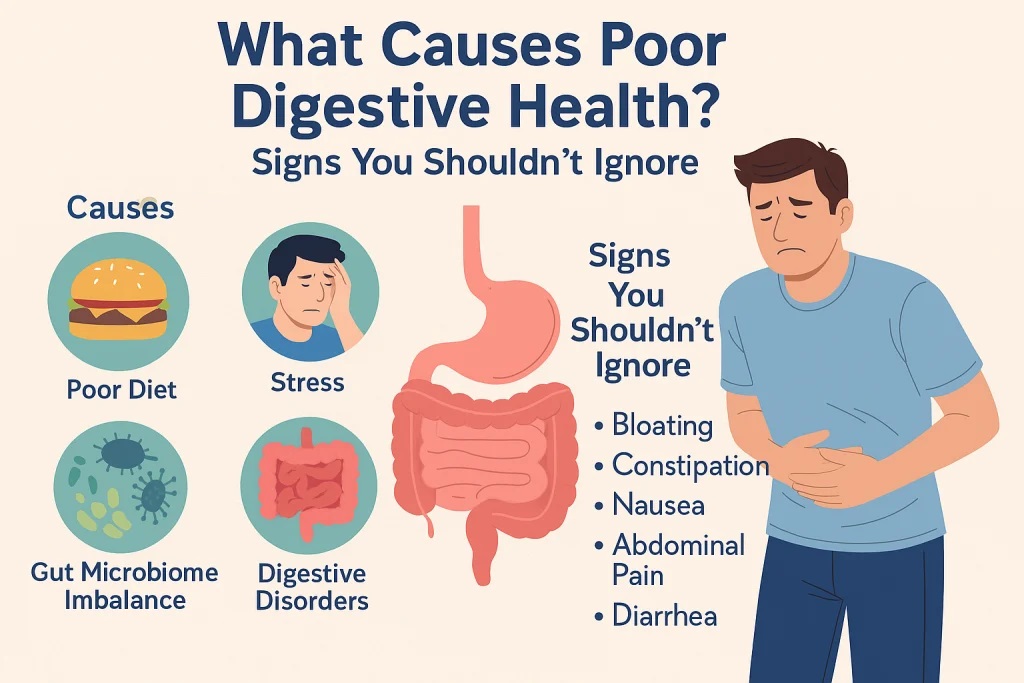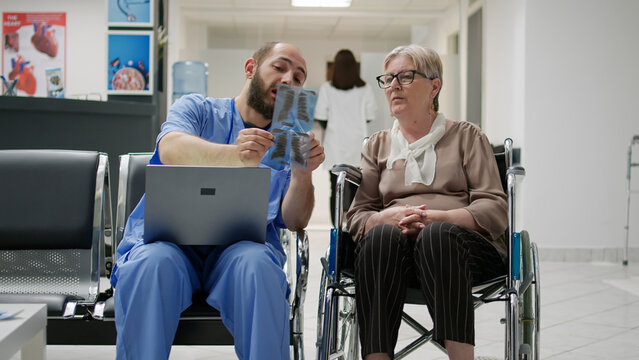At Local MD, one of the most effective preventive measures available today is pneumonia vaccination. Beyond protecting individuals from serious respiratory infections, pneumonia vaccines play a crucial role in reducing hospitalization rates and curbing antibiotic misuse, which fuels resistance.
Pneumonia remains one of the leading causes of hospitalization and death worldwide, particularly among infants, the elderly, and individuals with weakened immune systems. Despite advances in modern medicine, pneumonia continues to strain healthcare systems due to prolonged hospital stays, costly treatments, and the growing challenge of antibiotic resistance.
In this detailed guide, we explore the science behind pneumonia vaccines, their impact on public health, and how vaccination helps in building antibiotic stewardship for a healthier future.
Understanding Pneumonia and Its Global Burden
Pneumonia is an infection that inflames the air sacs in one or both lungs. These sacs may fill with fluid or pus, causing symptoms like cough, fever, chills, and breathing difficulties. It can be caused by various microorganisms — bacteria, viruses, or fungi — but the most common culprit is the bacterium Streptococcus pneumoniae, also known as pneumococcus.
According to the World Health Organization (WHO):
-
Pneumonia kills over 2.5 million people annually, including more than 600,000 children under five.
-
It is responsible for millions of hospital admissions each year, particularly during colder months.
-
Elderly adults, patients with chronic illnesses, and those with compromised immune systems are at the highest risk.
This staggering impact highlights the urgent need for preventive strategies, with vaccination being the most powerful tool available.
The Science Behind Pneumonia Vaccines
Pneumonia vaccines work by stimulating the immune system to recognize and defend against pneumococcal bacteria. There are two main types of vaccines used worldwide:
Pneumococcal Conjugate Vaccine (PCV)
-
Protects against 13 common strains of Streptococcus pneumoniae.
-
Recommended for infants, children, older adults, and those with weakened immunity.
-
Triggers a strong immune memory response, providing long-term protection.
Pneumococcal Polysaccharide Vaccine (PPSV23)
-
Protects against 23 strains of pneumococcal bacteria.
-
Recommended for adults over 65 and those with chronic diseases like diabetes or heart disease.
-
Offers broader coverage but shorter duration of immunity compared to PCV.
Both vaccines significantly reduce the risk of invasive pneumococcal disease (IPD) — infections that spread beyond the lungs, such as meningitis and sepsis.
How Pneumonia Vaccination Reduces Hospitalization Rates
One of the most measurable impacts of pneumonia vaccination is the reduction in hospital admissions for pneumonia and related complications. Vaccination not only protects individuals but also contributes to herd immunity, safeguarding unvaccinated populations.
Prevention of Severe Respiratory Infections
Pneumococcal bacteria are responsible for a significant portion of community-acquired pneumonia cases requiring hospitalization. Studies show that vaccinated individuals are up to 80% less likely to develop severe pneumococcal infections that necessitate hospital care.
By preventing serious infections in the first place, vaccination reduces the need for emergency visits, oxygen therapy, or ICU stays.
Shorter Disease Duration and Milder Symptoms
Even in cases where a vaccinated person contracts pneumonia, symptoms are often milder and resolve faster compared to unvaccinated individuals. This leads to fewer complications and shorter hospital stays, easing the burden on healthcare systems.
A 2021 study published in Clinical Infectious Diseases found that vaccinated adults hospitalized with pneumonia had a 50% lower mortality rate and recovered nearly two days faster on average.
Protecting High-Risk Populations
Elderly adults, newborns, and patients with chronic conditions such as COPD, diabetes, and cardiovascular diseases are particularly vulnerable to pneumonia. Vaccination provides a critical layer of defense, helping to prevent life-threatening complications and frequent readmissions.
This is especially crucial for healthcare facilities that face seasonal surges in respiratory infections. Preventing even a small percentage of cases can free up hospital beds and reduce healthcare costs.
Community-Level Protection (Herd Immunity)
Widespread vaccination not only protects the vaccinated individual but also reduces bacterial transmission within communities. When fewer people carry and spread pneumococcal bacteria, unvaccinated individuals benefit indirectly, leading to fewer outbreaks and lower hospitalization rates across the population.
This community protection is particularly vital for infants too young to be vaccinated and for those with weakened immune systems who may not respond strongly to vaccines.
Pneumonia Vaccination and Antibiotic Resistance: A Critical Link
The rise of antibiotic-resistant bacteria is one of the greatest global health threats today. Overuse and misuse of antibiotics have made once-treatable infections increasingly difficult to manage. Pneumonia is one of the leading conditions for which antibiotics are prescribed — often unnecessarily or inappropriately.
By preventing bacterial infections in the first place, pneumonia vaccines reduce the need for antibiotic use, which in turn helps curb the spread of resistant strains.
Fewer Infections = Fewer Antibiotic Prescriptions
Every time a patient develops a bacterial infection, antibiotics are often prescribed — even in viral cases where they offer no benefit. Vaccination decreases infection rates, reducing overall antibiotic consumption and helping slow the evolution of resistant bacteria.
A large-scale study by the Centers for Disease Control and Prevention (CDC) revealed that after the introduction of PCV13 in children, antibiotic prescriptions dropped by over 40% for ear and respiratory infections.
Reduction in Resistant Strains of Streptococcus pneumoniae
Before pneumococcal vaccines were widely used, antibiotic-resistant strains of S. pneumoniae were a major problem in hospitals and communities.
Since the introduction of PCV and PPSV vaccines:
-
Resistant infections have dropped significantly, especially in countries with strong immunization programs.
-
Vaccinated individuals are less likely to carry and spread resistant bacteria to others.
-
The overall resistance burden in communities has decreased, improving antibiotic efficacy for other infections as well.
Improved Antibiotic Stewardship
Pneumonia vaccination supports antibiotic stewardship programs — initiatives that promote responsible antibiotic use. By lowering infection rates, vaccines reduce pressure on physicians to prescribe antibiotics preemptively. This allows for better diagnosis, more targeted treatment, and less unnecessary antibiotic exposure.
At Local MD, we encourage vaccination as part of a broader approach to preserving antibiotic effectiveness for future generations.
Preventing Secondary Bacterial Infections After Viral Illnesses
Respiratory viruses like influenza and COVID-19 often pave the way for secondary bacterial infections such as pneumonia. These secondary infections frequently require antibiotic therapy and can be severe.
Pneumococcal vaccines help block these secondary infections, reducing both antibiotic use and hospital admissions during flu seasons or viral outbreaks.
Public Health Impact: Real-World Evidence
Numerous studies from around the world have demonstrated the far-reaching benefits of pneumonia vaccination:
-
United States: After the introduction of PCV13, hospitalizations for pneumococcal pneumonia in children under five dropped by nearly 40%, and in adults over 65 by 20%.
-
United Kingdom: Routine vaccination programs have prevented tens of thousands of hospital admissions annually, saving millions in healthcare costs.
-
Global Impact: The Gavi Alliance reports that pneumococcal vaccination has saved more than 1.5 million lives globally since 2010.
These statistics highlight how vaccination not only protects individuals but also strengthens healthcare systems worldwide.
Who Should Receive the Pneumonia Vaccine?
Vaccination recommendations vary based on age, health condition, and risk factors. According to the CDC and WHO, the following groups should receive pneumococcal vaccination:
For Infants and Children:
-
PCV13 is given in four doses at 2, 4, 6, and 12–15 months.
For Adults Aged 19–64 with Health Risks:
-
People with chronic heart, lung, or liver disease
-
Smokers
-
Individuals with diabetes, HIV, or weakened immunity
For Adults 65 and Older:
-
A dose of PCV15 or PCV20, followed by PPSV23 (if applicable).
These vaccines are safe, effective, and can be given alongside other routine vaccinations like the flu shot.
Myths and Misconceptions About Pneumonia Vaccination
Despite overwhelming evidence, some myths continue to discourage people from getting vaccinated. Let’s clear up a few common misconceptions:
-
“I’m healthy, so I don’t need it.”
Even healthy adults can get pneumonia, especially during cold or flu season. Vaccination provides long-term protection. -
“I can get pneumonia from the vaccine.”
False. Pneumonia vaccines contain inactive bacterial components — they cannot cause infection. -
“I only need one shot for life.”
Booster doses or additional vaccines may be required depending on your age and health status. -
“Antibiotics can always treat pneumonia.”
Not always — resistant strains and viral pneumonia cannot be cured with antibiotics. Prevention through vaccination is the safer choice.
The Future of Pneumonia Prevention
Medical research continues to improve vaccine design, expanding coverage against more pneumococcal strains and enhancing immune response in older adults. Combined with public awareness campaigns, these efforts aim to eliminate preventable pneumonia deaths and minimize antibiotic misuse.
In the future, personalized vaccination strategies and integrated respiratory health programs may further reduce hospital admissions and enhance population health outcomes.
How Local MD Supports Pneumonia Prevention and Awareness
At Local MD, we are committed to preventive healthcare and community education. Our medical professionals provide:
-
Comprehensive vaccination assessments for all age groups.
-
Individualized vaccine schedules based on medical history and risk level.
-
Education on antibiotic stewardship and infection prevention.
-
Follow-up care to monitor immune response and ensure long-term protection.
By prioritizing prevention through vaccination, we help our patients live healthier lives while contributing to global efforts against antibiotic resistance.
Conclusion
The pneumonia vaccine is more than just a preventive measure — it’s a public health success story. By reducing hospitalizations, lowering infection rates, and slowing antibiotic resistance, vaccination strengthens both individual and community health.
At Local MD, we advocate for proactive care, where prevention comes before treatment. Pneumonia vaccination is a simple yet powerful step toward a healthier, more resilient future.
Protect yourself. Protect your community. Prevent pneumonia — get vaccinated today.






